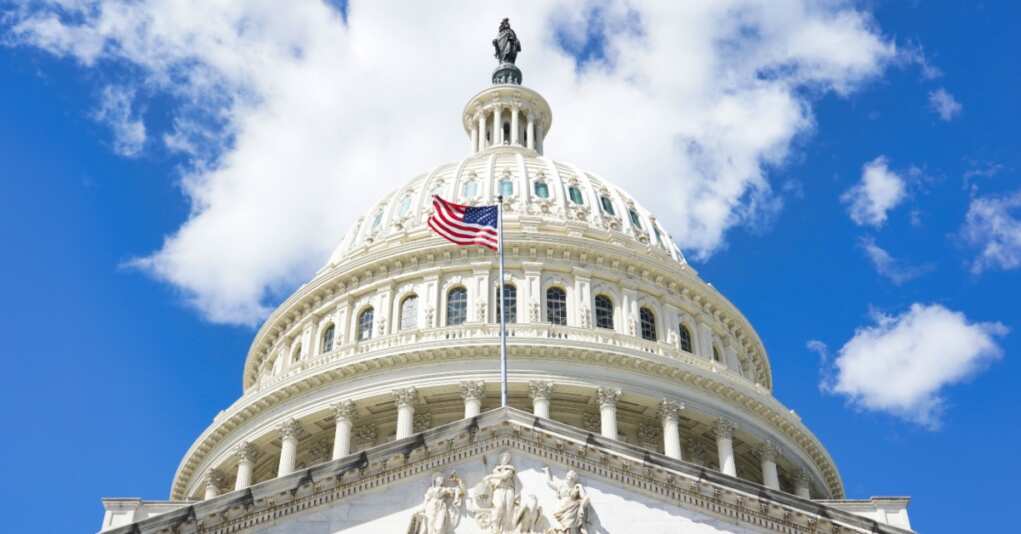Hegseth and Gabbard’s Capitol Hill Charm Offensive: Senate Support or Political Theater?

Ladies and gentlemen, gather ’round for the latest episode of ‘As the Swamp Turns.’ Our protagonists today? Pete Hegseth and Tulsi Gabbard—President-elect Donald Trump’s dynamic duo, handpicked to lead the Department of Defense and the Office of the Director of National Intelligence, respectively. Both are now embarking on the age-old Washington tradition of the Capitol Hill charm offensive, seeking the Senate’s blessing for their nominations.
Pete Hegseth: The Warrior Under Fire
First up, Pete Hegseth—a decorated Army National Guard veteran and former Fox News personality. He’s been nominated to helm the Pentagon, but his path to confirmation is littered with landmines. Allegations of misconduct, including sexual assault—which he vehemently denies—have cast a long shadow over his nomination. In an effort to clear the air, Hegseth has been making the rounds with key senators, including Senator Joni Ernst of Iowa—a combat veteran and sexual assault survivor herself.
After their meeting, Ernst noted that Hegseth committed to completing a Pentagon audit and addressing sexual assault within the ranks. She stated, ‘As I support Pete through this process, I look forward to a fair hearing based on truth, not anonymous sources.’ Hegseth, for his part, described the meeting as ‘great’ and emphasized their shared dedication to defense.
Tulsi Gabbard: The Maverick in the Spotlight
Next, we have Tulsi Gabbard—a former Democratic congresswoman from Hawaii, now a staunch Trump supporter, nominated to serve as Director of National Intelligence. Her nomination has raised eyebrows across the political spectrum. Critics point to her 2017 meeting with Syrian President Bashar al-Assad and her perceived leniency toward Russia as potential red flags. Moreover, her lack of significant intelligence experience has added fuel to the fire.
Gabbard has been actively engaging with senators to allay their concerns. She emphasizes her alignment with Trump’s ‘America First’ policies and her commitment to a more restrained U.S. military presence abroad. Despite the skepticism, she has garnered support from over 250 veterans, including prominent figures like Reps. Eli Crane and Brian Mast, who highlight her combat service and dedication to the nation.
The Senate’s Role: Gatekeepers or Rubber Stamps?
The Senate, with its slim Republican majority, holds the keys to the confirmation kingdom. Both Hegseth and Gabbard need near-unanimous GOP support to secure their positions. However, the controversies surrounding them have made some senators hesitant. Senator Lindsey Graham, for instance, described the allegations against Hegseth as ‘disturbing.’
The confirmation process is designed to vet nominees thoroughly, ensuring they are fit for the roles they’ve been selected for. It’s a test of character, competence, and credibility. As such, senators are expected to scrutinize Hegseth’s and Gabbard’s records meticulously, weighing the allegations and concerns against their qualifications and commitments.
The Political Theater: More Than Meets the Eye
Beyond the formalities, there’s an undeniable element of political theater at play. The nominations of Hegseth and Gabbard are not just about filling key positions; they’re a reflection of Trump’s vision for his administration. By selecting individuals with controversial backgrounds and unorthodox views, Trump signals a departure from the status quo, challenging the establishment and pushing his ‘America First’ agenda.
However, this approach comes with risks. The controversies surrounding his nominees could lead to protracted confirmation battles, diverting attention and resources from other pressing matters. Moreover, if the Senate rejects these nominations, it could be seen as a rebuke of Trump’s choices, potentially weakening his political capital.
Conclusion: The Waiting Game
As Hegseth and Gabbard continue their Capitol Hill engagements, the political world watches with bated breath. Will the Senate endorse Trump’s picks, or will it assert its authority and demand alternatives? The coming days will reveal whether these nominations are a masterstroke of political strategy or a miscalculation that could hinder the administration’s momentum.
In the end, the confirmation process serves as a crucible, testing not only the nominees but also the Senate’s commitment to its constitutional responsibilities. It’s a delicate balance between deference to the executive branch and the duty to ensure that those entrusted with power are worthy of it. As the drama unfolds, one thing is certain: in Washington, there’s never a dull moment.

